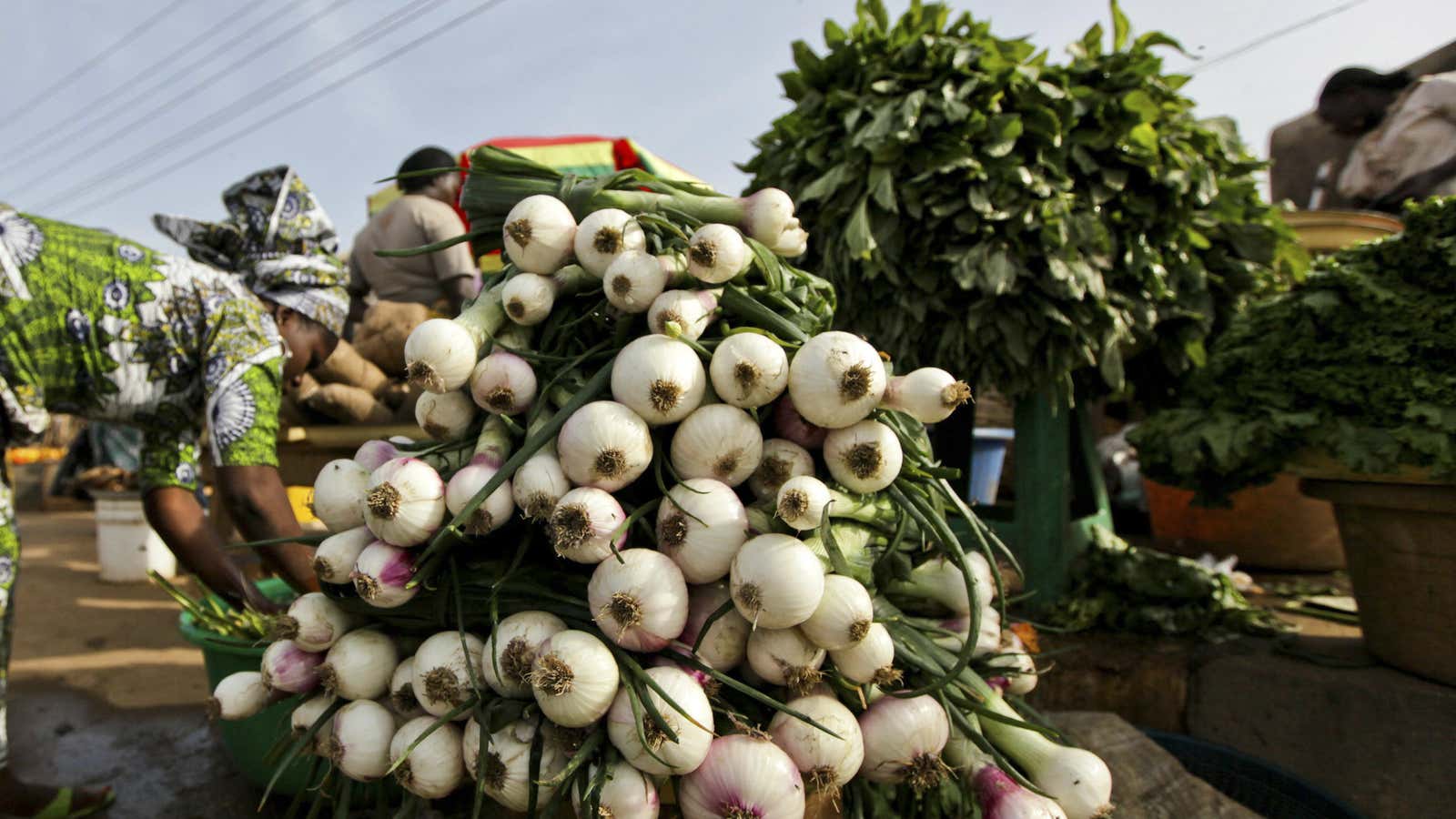To wean Nigeria off its dependency on oil export revenue, Nigeria’s president Muhammadu Buhari has often suggested turning attention to agriculture.
Young Nigerians have been urged to take up farming and investors have been urged to back them. It’s a sound plan on paper: large-scale agriculture, or rather agribusiness, could reverse spiking unemployment and possibly boost exports and foreign exchange earnings. But, as the government continues to fail to deal with a lingering deadly conflict between herdsmen and farmers in Nigeria’s middle belt—the “food basket” of the nation, even the best laid plans are unlikely to deliver on their promise.
Despite several high-profile attacks followed by presidential promises to find and jail perpetrators, the violence has continued seemingly unabated. The latest attack on Saturday (June 23) left more than 200 dead in Plateau, a state in the middle belt. Back in January, similar attacks left 73 people dead in Benue, another middle belt state.
A root cause of these clashes involves nomadic herdsmen venturing southwards seeking grazing land for their cattle given increased desertification in Nigeria’s north. But grazing on farmlands has destroyed livelihoods of farmers, triggering a deadly cycle of confrontations and reprisal attacks. As Quartz has reported, pastoral conflict has become Nigeria’s biggest insecurity threat and is redefining internal geopolitics.
But, in addition to the tragic loss of lives, continued violence in a major food producing region is bad for the agriculture and food industries with wider implications for the productivity of Nigeria’s agriculture sector. With current produce levels unable to match local demand in many cases, growing exports and foreign revenue is still far-fetched goal. Sustained pastoral conflicts which hamper food production will mean that taking advantage of any gaps in global agriculture trade will remain a pipe-dream for a while.
An example of a recent opportunity has appeared in the trade bust-up between the United States and China. Facing higher tariffs from the US, China has looked to source more soybeans from Nigeria. But with a local annual deficit of 150,000 metric tons, Nigeria can hardly meet China’s two million metric ton demand.
Agribusiness investors
This week, Farmcrowdy, an agribusiness startup that allows middle-class Nigerians fund farmers across the country and share in profits, said some of its farmer-partners were killed in the Plateau attack. As hundreds of smallholder farmers in Nigeria’s north are a key cog in the business models of Farmcrowdy and other agriculture crowdfunding businesses, the sustained risk of violence affects the wider value chain. Onyeka Akumah, chief executive of Farmcrowdy, says the business did not work with farmers in affected areas this year due to the risk of violence and will “avoid such areas until we deem them safe for our investments.” Being cut off the value chain is a significant loss for these smallholder farmers as agribusinesses provide them increased access to capital and, crucially, guaranteed sales.
The risk is also real for prospective farm sponsors. Stanley Azuakola, an Abuja-based public policy analyst says realizing “just how vulnerable agribusinesses can be to insecurity” makes him less likely to sponsor a farm. If similar sentiments take hold, it will be a major worry for businesses in a space that’s just starting to win investor conviction: Farmcrowdy raised $1 million in seed funding last December. With the government seemingly slow to stop recurring attacks, the concern will linger.
Cheta Nwanze, researcher with SBM Intelligence, a Lagos-based intelligence consulting firm, says there’s a more pressing local danger. ”In the short to medium term, there will be no serious improvement in Nigeria’s capacity to grow food,” he tells Quartz. That’s a reality that directly runs against another one of president Buhari’s often tooted agriculture goals: achieving self-sufficiency in food production.
